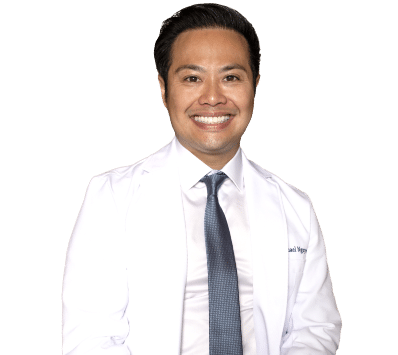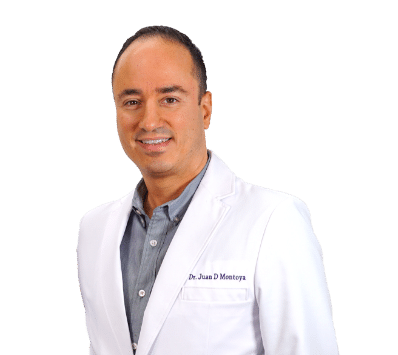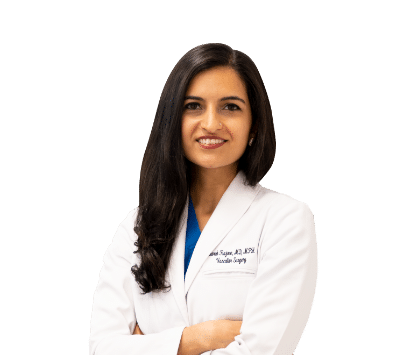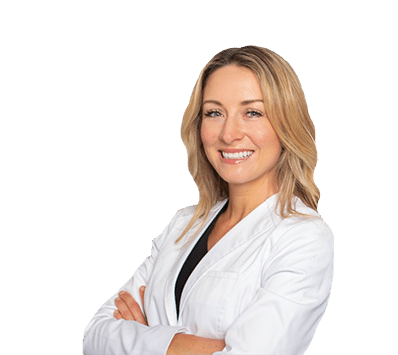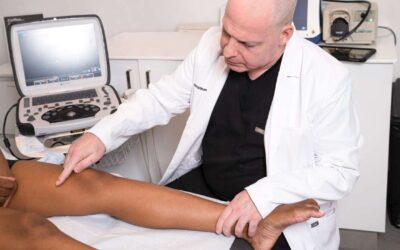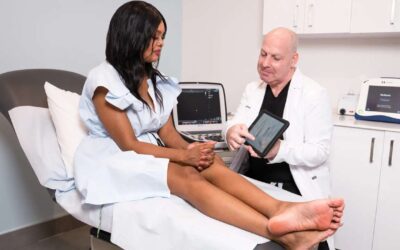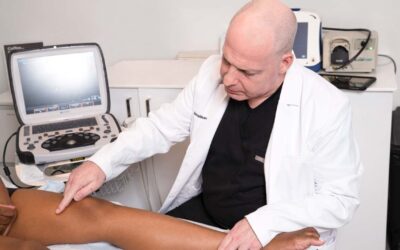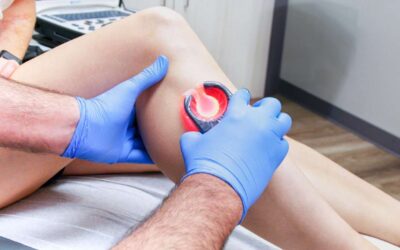What Causes Spider Veins? Symptoms, Risk Factors, Treatments
What are Spider Veins?
Spider veins are dense clusters of damaged blood vessels or broken capillaries that appear just underneath the skin’s surface. Spider veins are extremely thin blood vessels, and they don’t bulge out of the skin’s surface. They usually appear on the legs and lower extremities of the body, but they can also appear on the face, feet, arms, and other parts of the body. Patients often say spider veins look like a mass of spider webs spreading outwards.
Spider Veins vs. Varicose Veins: What’s the Difference?
Patients often conflate the terms “spider veins” and “varicose veins.” While both spider veins and varicose veins are essentially dilated or damaged blood vessels, they have some distinct differences worth noting.
- Spider veins are extremely thin blood vessels or broken capillaries, whereas varicose veins are large and puffy blood vessels. Varicose veins are significantly larger than spider veins.
- Spider veins never bulge out of the skin’s surface, but varicose veins always protrude out of the skin’s surface. Patients often say varicose veins look like bulging ropes on the legs.
- Spider veins may or may not be caused by underlying chronic venous insufficiency, but varicose veins are always symptomatic of underlying chronic venous insufficiency.
- Spider veins aren’t dangerous in and of themselves, but varicose veins can be dangerous.
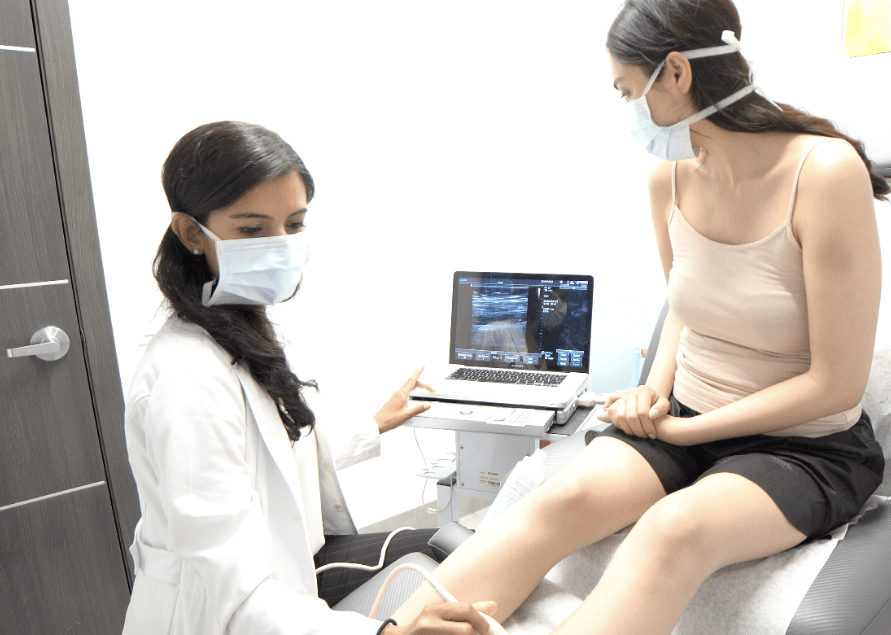
What Causes Spider Veins?
Chronic venous insufficiency is usually the root cause of spider veins and varicose veins. Chronic venous insufficiency is a dangerous circulatory disorder caused by the collapse of vein valves. To understand how vein disease leads to spider veins, you need to understand how veins function.
The human body contains two types of blood vessels: arteries and veins. The arteries carry blood from the heart to various parts of the body, and the veins carry blood from the limbs to the heart. The veins in your legs must work extra hard to push blood upwards to the heart against the force of gravity. The valves in the veins act as one-way doors that allow blood to flow to the heart but prevent blood from flowing backward due to gravity, thus ensuring smooth blood circulation to the heart.
Chronic venous insufficiency is a medical condition wherein the vein valves collapse or malfunction because of age-related changes, hormonal changes, pregnancy, or other factors. When the vein valves collapse, gravity forces blood to flow backward and pool in the leg veins. The continued accumulation of blood in leg veins leads to increased vascular dilation and the formation of spider veins and varicose veins. As more blood accumulates in the leg veins, you develop more spider veins, and the existing varicose veins grow larger.
What are the Symptoms of Vein Disease?
Chronic venous insufficiency leads to fairly mild and benign symptoms in the earliest stages, such as mild leg heaviness, leg pain, leg swelling, frequent leg cramps, restless leg syndrome, and fatigue in your legs. The symptoms usually worsen at the end of the day or after long periods of inactivity. Over time, you may develop spider veins and varicose veins. And if you don’t seek vein treatment, you may eventually develop skin discoloration, leg ulcers, and blood clots in leg veins (deep vein thrombosis).
What are the Risk Factors for Spider Veins?
Genetics is the leading risk factor for spider veins. If your biological mom and dad have a history of vein problems, you have a 90% risk of spider or varicose veins. Besides genetic predisposition, the following are some of the other potential risk factors for spider veins:
- Biological sex— women have a higher risk of spider veins than men
- Age— the risk of spider veins considerably increases over 50 years of age
- Hormonal changes— increased estrogen and progesterone lead to weakening vein valves
- Pregnancy— you have a high risk of vein problems during pregnancy
- Obesity— being overweight or obese leads to a high risk of vein disease
- Occupation— you have a high risk of vein disease if you sit or stand still for long periods
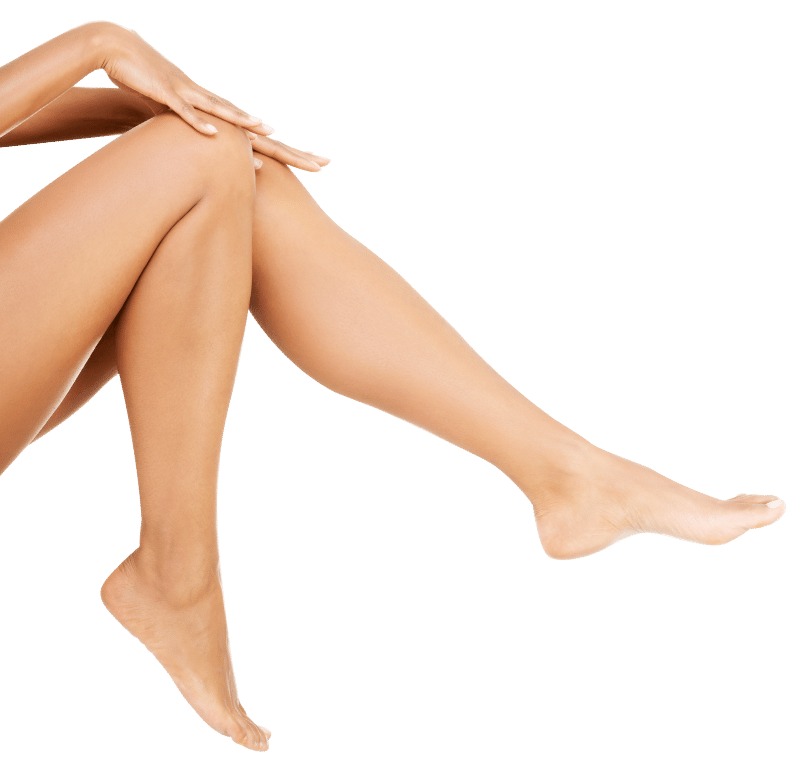
BOOK AN APPOINTMENT
Experiencing symptoms of vein disease? Book an appointment with one of the our Vein Specialists in New York.
What is the Best Spider Vein Treatment?
Sclerotherapy is widely considered the best minimally invasive spider vein treatment in New Jersey. Sclerotherapy involves injecting a sclerosant medicine into the unhealthy spider veins to irritate the vein walls, turning the spider veins into hardened scar tissues eventually reabsorbed by the body. Over time, your body metabolizes the spider veins, and they fade away from the skin’s surface. The accumulated blood reroutes into healthier leg veins to restore optimal blood circulation to the heart.
Sclerotherapy is a cosmetic treatment for spider veins, which means it only removes the visible spider veins without addressing the root cause of vein disease. Our vein doctors also perform duplex ultrasound scans to visualize the blood flow in your leg veins, diagnose underlying vein disease, and curate a personalized vein treatment plan that ensures optimal results. If you have chronic venous insufficiency, your spider vein treatment will be preceded by endovenous laser ablation, radiofrequency ablation, or venaseal.
Spider Vein & Varicose Vein FAQs
What happens if varicose veins are left untreated?
Sclerotherapy is widely considered the best minimally invasive spider vein treatment in New Jersey. Sclerotherapy involves injecting a sclerosant medicine into the unhealthy spider veins to irritate the vein walls, turning the spider veins into hardened scar tissues eventually reabsorbed by the body. Over time, your body metabolizes the spider veins, and they fade away from the skin’s surface. The accumulated blood reroutes into healthier leg veins to restore optimal blood circulation to the heart.
Sclerotherapy is a cosmetic treatment for spider veins, which means it only removes the visible spider veins without addressing the root cause of vein disease. Our vein doctors also perform duplex ultrasound scans to visualize the blood flow in your leg veins, diagnose underlying vein disease, and curate a personalized vein treatment plan that ensures optimal results. If you have chronic venous insufficiency, your spider vein treatment will be preceded by endovenous laser ablation, radiofrequency ablation, or venaseal.
Spider Vein & Varicose Vein FAQs
What happens if varicose veins are left untreated?
If varicose veins are left untreated, the symptoms of vein disease will continue worsening. You may eventually suffer from leg ulcers, skin discoloration, deep vein thrombosis, and other complications.
Should I get my varicose veins treated?
Yes. You should definitely get your varicose veins treated to prevent them from growing larger. If you don’t remove varicose veins, they may eventually burst and cause profuse bleeding.
Do varicose veins cause high blood pressure?
If left untreated, varicose veins can lead to high blood pressure because of the continued accumulation of blood in leg veins.
Does high blood pressure cause varicose veins?
High blood pressure can weaken the vein valves and increase the risk of chronic venous insufficiency, which can lead to varicose veins and spider veins.
Can I wear compression stockings for varicose veins?
Compression stockings can push some of the accumulated blood towards the heart, thus alleviating the worst symptoms of vein disease. But they can’t treat varicose veins.
Schedule Your Vein Treatment in New York City
New York Vein Treatment is a group of state-of-the-art medical centers for vein treatment in New York City. We have state-of-the-art offices in Midtown Manhattan and the Financial District. If you have spider veins, varicose veins, or other signs and symptoms of vein disease, please schedule your vein treatment in New York City.
MEET OUR NEW YORK
VEIN SPECIALISTS
Dr.MICHAEL NGUYEN
Veins Specialist NYC
He leads the team of vein doctors offering the highest level of care at our Spider and Varicose Vein Treatment Center NYC.
HARVARD MEDICAL SCHOOL
Dr. JUAN D. MONTOYA
Veins Specialists NYC
Highly sought after for his expertise and excellent outcomes in Vein Treatments in Manhattan.
YALE MEDICAL SCHOOL
Dr. SAREH RAJAEE
Veins Specialists NYC
She has extensive experience with vein performing procedures based on New York City.
HARVARD MEDICAL SCHOOL
Learn more about our clinics, doctors and procedures!

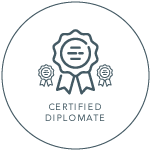

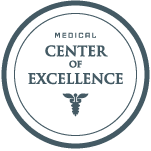



Contact us
Call us
Speak instantly with one of our team members; they will answer any questions you may have regarding insurance coverage, booking an appointment and our vein treatment locations. (646) 859-1833
Book online
Visit our Book Appointment page and instantly request an appointment at the New York vein center near you. We offer Free Insurance Verification before your appointment.
Get directions
Learn how to easily get to the New York vein center.
FEATURED POSTS BY VEIN DOCTORS
Best Treatment for Spider Veins in Upper East Side, NY
Best Treatment for Spider Veins in Upper East Side, NYYou may have noticed clusters of thin, reddish-purple veins spreading across your legs, ankles, or face. At first, they might have seemed like a minor cosmetic issue—a few visible veins that didn’t cause much...
Treat Venous Reflux at Upper East Side’s New Vein Clinic
Treat Venous Reflux at Upper East Side's New Vein ClinicYou may have noticed heaviness, aching, or swelling in your legs, especially after standing for long periods. Perhaps your legs feel restless at night, or you see bulging veins beneath the skin. These could be...
Sclerotherapy for Varicose Veins in Upper East, New York
Sclerotherapy for Varicose Veins in Upper East, New YorkHave you ever noticed clusters of thin, web-like veins spreading across your legs or experienced persistent aching, heaviness, or swelling? These symptoms might seem minor initially, but they could indicate...
Best Treatment Options for Spider Veins in Bronx, New York
Best Treatment Options for Spider Veins in Bronx, New YorkYou’re getting ready for an outing, but you feel self-conscious about the thin, web-like veins visible on your legs. You wonder if they’re purely cosmetic or indicative of a deeper issue. Perhaps you’ve...
